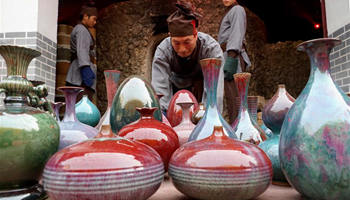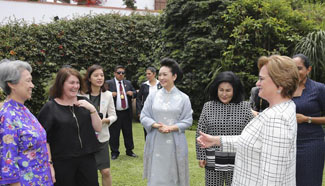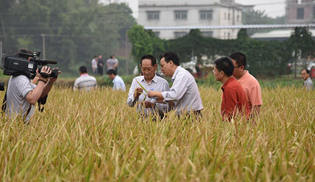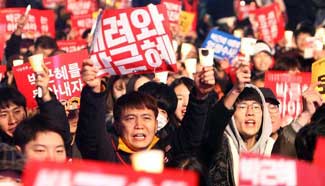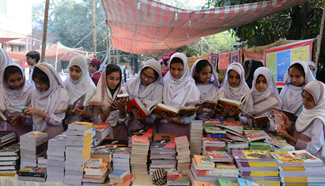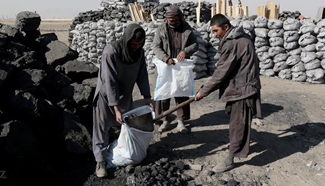by Xinhua writer Xia Lin
LIMA, Nov. 19 (Xinhua) -- Participants echoed Chinese President Xi Jinping's call for speeding up the negotiations about a regional overall economic partnership at the APEC CEO Summit on Saturday in Lima, believing the Free Trade Area of the Asia-Pacific (FTAAP) now under discussion will be a new impetus for global development.
Building an FTAAP, which is aptly regarded by the business community as the APEC dream, is a strategic initiative critical for the long-term prosperity of the Asia-Pacific, Xi told the summit.
"We should firmly pursue the FTAAP as an institutional mechanism for ensuring an open economy in the Asia-Pacific," Xi said.
At 2014 APEC meeting, the Beijing Roadmap was adopted to push forward the FTAAP process. The collective strategic study on this plan is expected to be submitted to the 24th APEC Economic Leaders' Meeting on Sunday.
Concrete steps and measures are expected to follow to enhance the development of the Asia-Pacific, and even the whole world, by means of integration and connectivity.
Juan Andres Camus C., president of Bolsa de Comercio de Santiago, the foremost equity market in Chile, believes it is very necessary to build the FTAAP, as the Asia-Pacific needs a unified free trade area to boost economic development and benefit its people.
Once established, the FTAAP, the largest free trade area in the world can unleash much greater economic vigor than other regional trade arrangements and add an estimated 2.4 trillion U.S. dollars of output to the global economy.
"We have an obligation to continue the core agenda. Perhaps the first issue is the adoption of the collective strategic study, which was required by the Beijing Roadmap," Raul Salazar, APEC affairs director at the Peruvian Foreign Ministry, told Xinhua in Lima.
"It is expected that this year the leaders will approve the study as a prerequisite to begin negotiating what would be the FTAAP," said Salazar, adding that the free trade zone should be implemented no later than 2025 if agreements can be reached.
"What is approved this year is the analytical study and then the economies have to agree on the next steps we are going to take in the future to start these discussions. This is still an effort as I said that requires a great encouragement," Luis Quesada, 2016 chair of APEC senior officials, told Xinhua in Lima.
"We must energize trade and investment to drive growth, make free trade arrangements more open and inclusive and uphold the multilateral trading regime," said Xi in his speech.
Integration, connectivity, innovation and win-win cooperation will be the major efforts for Asia to inject new vitality into and find new paths for the world economy, he added.
Participants praised Xi's blueprint for the proposed FTAAP for being well worthy and far-sighted.
"The FTAAP will lead to more investment opportunities in and outside China. China is opening its gate and helping the developing countries in fields such as transportation and infrastructure," said Carlos Galvez Pinillos, president of Peru's National Association of Minerals, Petroleum and Energy.
"With the FTAAP, President Xi is telling us that more and new markets are emerging, and we are together with China," he told Xinhua.
Eric Farnsworth, vice president of the Council of the Americas, believes China is willing to join hands with others to develop economy, and the FTAAP will provide more chances for cooperation in infrastructure and agriculture, especially between China and Latin America.
In his speech, Xi also promised that no matter what level of development it may reach, China, with its root in the Asia-Pacific, will continue to contribute to the region's development and prosperity.
"China's contribution has been a great impetus to the free trade area. I think the step it took in Beijing has put us forward," said Salazar.
Established in 1989 as a forum for the 21 Pacific Rim economies to promote free trade throughout the Asia-Pacific region, APEC is becoming an increasingly important mechanism to address economic issues not only within the region, but also around the world.
APEC has played an important role in advancing trade liberalization and facilitation, promoting economic integration and boosting connectivity.
The Asia-Pacific region, which is vital to global peace and development, accounts for 40 percent of the world population, around half of world trade, and 57 percent of global GDP.






